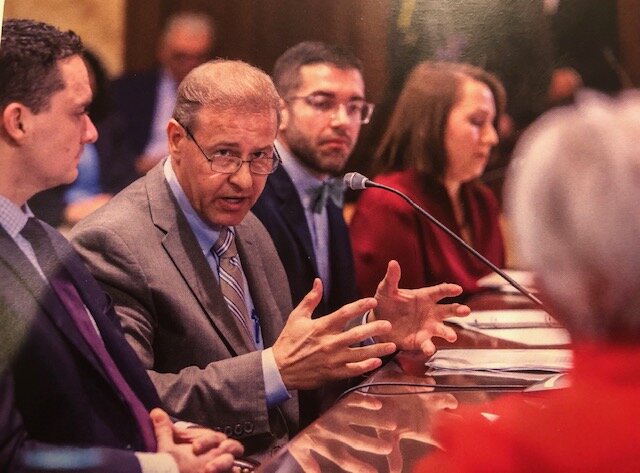Industrial Energy Consumers of Pennsylvania
The Voice of Large Energy Consumers In Pennsylvania
IECPA releases white paper regarding the Differences in Large Energy Users
——————————————————————————————————————--
IECPA Shares Energy Policy Positions
We encourage Pennsylvania lawmakers to consider the following:
The increased electricity cost from a carbon tax approach is unnecessary!
• Energy-related carbon dioxide emissions in Pennsylvania have decreased just as much on a percentage basis as the other states participating in RGGI and have decreased MORE on an absolute basis without the added cost of the carbon tax program!
Electricity retail choice has benefited large energy users helping their Pennsylvania facilities to remain competitive in a global market!
• Maintaining a robust retail choice market to drive innovation and efficiencies is paramount to our members.
Most large industrial energy consumers require continued reliance upon natural gas generation for the foreseeable future!
• Industrials support the increase of carbon free generation while also having production processes that need reliable energy around the clock.
Pennsylvania needs natural gas and electricity generation siting and regulatory reform.
• Should be explored to ensure the availability of natural gas and electricity infrastructure for reliable electricity supply.
Pennsylvania needs increased competition for the development of transmission.
• Transmission rates are increasing at more than double the rate of inflation.
Legislative policy should not create significant additional electricity cost for Pennsylvania manufacturing!
• Additional cost that are created by legislative policy not the market such as the Alternative Energy Portfolio Standard, Act 129 and the Gross Receipt Tax should be significantly reformed to make Pennsylvania’s industrial electricity rate more competitive. For instance, Tier II of the AEPS should be expanded to include Combined Heat and Power (CHP) generation facilities installed by industrial customers.
——————————————————————————————————————
IECPA Executive Director, Rod Williamson, provides testimony at the Republican Policy Committee hearing on Stopping New Energy Taxes
——————————————————————————————————————
Industrial Energy Consumers of Pennsylvania ("IECPA") and Pennsylvania Energy Consumer Alliance ("PECA") file comments with the Pennsylvania Public Utility Commission regarding Resource Adequacy in Pennsylvania addressing:
1. Large Consumers Have Significant Concerns About Resource Adequacy.
2. Large Consumers Support a Statewide Approach to Integrate Large Loads Purchasing Power from Grid.
3. Large Consumers Support Pennsylvania Undertaking a Comprehensive Energy Strategy.
IECPA is a trade organization formed in 1982 by large, energy-intensive customers with one or more facilities in the Commonwealth of Pennsylvania. IECPA regularly monitors Public Utility Commission (PUC) activities, participates in the PUC regulatory process, and participates in the legislative process at the General Assembly on matters impacting large energy users.

